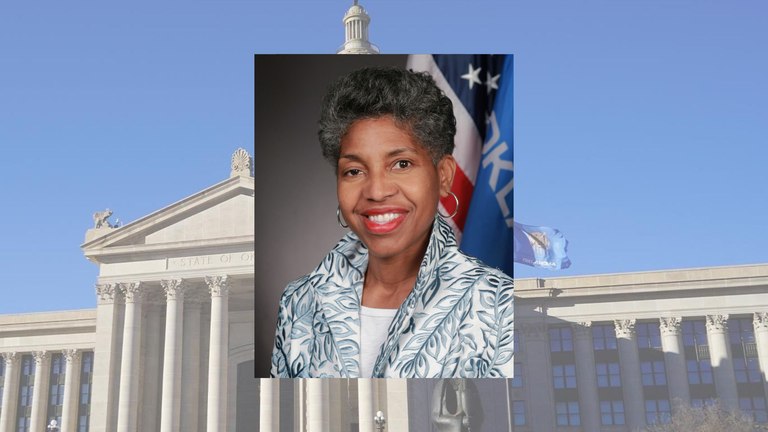
Education
Ray Carter | April 24, 2023
Democratic leader admits few ‘choose’ public schools
Ray Carter
Democratic lawmakers have denounced proposals that would give Oklahoma families access to a wider range of educational options by providing parents a refundable tax credit to help them cover the costs of private school or homeschooling.
Instead, Democratic lawmakers have argued all focus should be on simply increasing spending in public schools, regardless of academic outcomes.
“House and Senate Democrats have chosen to prioritize public school students and teachers because 95% of Oklahomans make the choice to attend a public school,” said House Democratic Leader Cyndi Munson of Oklahoma City.
Munson made that comment after Gov. Kevin Stitt unveiled a proposal that would devote $800 million in new spending to education this year. Stitt’s plan includes not only $200 million for tax credits that would allow families to choose private schools or homeschooling, but also $300 million that would be divided among schools with a cap of $2 million in new funding per public-school district, and another $300 million that would go to public schools through the state funding formula and provide teacher pay raises of up to $5,000 apiece.
Under the proposal, families could receive tax credits of $5,000 per student for private school and $1,000 per child for homeschooling with priority given to households earning under $250,000 annually and a cap of $200 million total spend for year one. The tax credit would increase to $6,000 per student in year two and then $6,500 in year three with no income cap and no cap on total spend at that time.
“So, it’s not like they’re choosing to go to a public school.” —State Rep. Regina Goodwin
Stitt’s proposal contains elements of competing legislation passed by the Oklahoma House of Representatives and the Oklahoma Senate.
Democrats have long opposed increasing school-choice opportunities, often arguing the overwhelming majority of families choose public schools, as Munson did in response to Stitt’s proposal.
But a member of House Democratic caucus leadership recently acknowledged that talking point is bogus.
In a February committee meeting, state Rep. Regina Goodwin, D-Tulsa, said families go to public schools because they cannot afford private-school tuition.
“The everyday person really can’t afford that. That’s why they go to public schools,” said Goodwin, who is an assistant minority floor leader for the House Democratic caucus. “So, it’s not like they’re choosing to go to a public school. It’s like they wanted their folks to be educated. The school is in the neighborhood. It’s free. Would you agree that’s probably why most folks, probably 90 percent of our children, go to public schools—because it’s there and it’s free?”
(Goodwin is among those who have opposed passage of school-choice tax credits.)
Despite Stitt calling for $600 million in new spending on public schools, Munson said the governor’s plan “prioritizes vouchers for private schools and reduces teacher pay raises and public classroom funding.”
But during a recent press availability, Stitt noted that public-school spending will not only increase but also remain dramatically larger than the amount devoted to the proposed school-choice tax-credit program. The proposed increase in public-school spending comes on top of billions already devoted to public schools.
“Big picture here, guys: This is $3.8 billion into (public-school) education, plus $200 million in tax credits,” Stitt said. “So the state, for the first time ever, is going to go from about $3.3 billion to investing $4 billion on the appropriated side.”
That means for every $1 provided to Oklahoma families for school-choice tax credits, public schools will receive $19 in state funding.
And, Stitt noted, billions more go to public schools from local property taxes, meaning the financial gap between public-school funding and school-choice programs is even larger.
“It’s a huge increase in education funding,” Stitt said. “We are planting a flag in Oklahoma that workforce, that education, is very, very important for our state.”

Ray Carter
Director, Center for Independent Journalism
Ray Carter is the director of OCPA’s Center for Independent Journalism. He has two decades of experience in journalism and communications. He previously served as senior Capitol reporter for The Journal Record, media director for the Oklahoma House of Representatives, and chief editorial writer at The Oklahoman. As a reporter for The Journal Record, Carter received 12 Carl Rogan Awards in four years—including awards for investigative reporting, general news reporting, feature writing, spot news reporting, business reporting, and sports reporting. While at The Oklahoman, he was the recipient of several awards, including first place in the editorial writing category of the Associated Press/Oklahoma News Executives Carl Rogan Memorial News Excellence Competition for an editorial on the history of racism in the Oklahoma legislature.